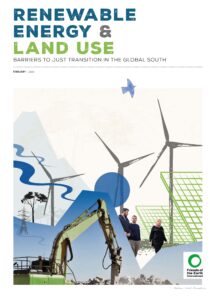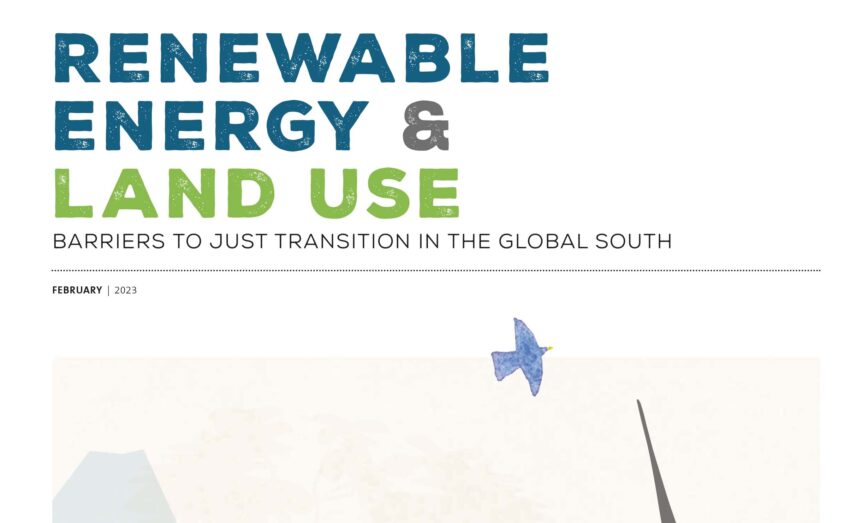 The Friends of the Earth International report (2023) Renewable Energy and Land Use: barriers to just transition in the global South depicts case studies from Argentina, Bangladesh, India and Palestine highlighting key barriers to just transitions including: ‘Green grabbing’ and energy colonialism; Lacking consideration regarding patterns of land and water use; Lack of conservation policy, environmental impact assessment and follow-up; Political oppression and apathy; Patriarchal structures that exclude women’s participation beyond household-level decision making; Outdated grid infrastructure.
The Friends of the Earth International report (2023) Renewable Energy and Land Use: barriers to just transition in the global South depicts case studies from Argentina, Bangladesh, India and Palestine highlighting key barriers to just transitions including: ‘Green grabbing’ and energy colonialism; Lacking consideration regarding patterns of land and water use; Lack of conservation policy, environmental impact assessment and follow-up; Political oppression and apathy; Patriarchal structures that exclude women’s participation beyond household-level decision making; Outdated grid infrastructure.
The report makes the following key recommendations for implementing renewable energy in the Global South in a way that protects the rights of peoples, and moves away from a neo-colonial extractivist energy system:
1. Ensure that communities that host renewable energy projects significantly share in the decision-making processes that affect them as well as the benefits. The latter should include access to sufficient, affordable energy and meaningful socio-economic opportunities that support the wider community instead of creating tensions and divisions.
2. Promote women in technical and decision making roles beyond household level domestic spheres. Targeted and sustained efforts are needed including effective implementation of gender mainstreaming policies, and equitable training and leadership opportunities to ensure just transitions for all, not just 50% of society.
3. Carefully consider seasonal land (and water) use patterns of local communities, including intersectional differences related to gender and socio-cultural norms and practices. Importantly this must include usage of landless groups such as pastoralists.
4. Recognise the environmental and socio-economic costs of political apathy favouring centralised and fossil fuelbased business as usual approaches. Develop effective and contextualised policy implementation for the rapid deployment of renewables such as rooftop solar.
5. Develop national policies to protect ecological habitats recognised for their importance through the Ramsar convention and ensure capacity to independently monitor implementation of environmental impact policies.
